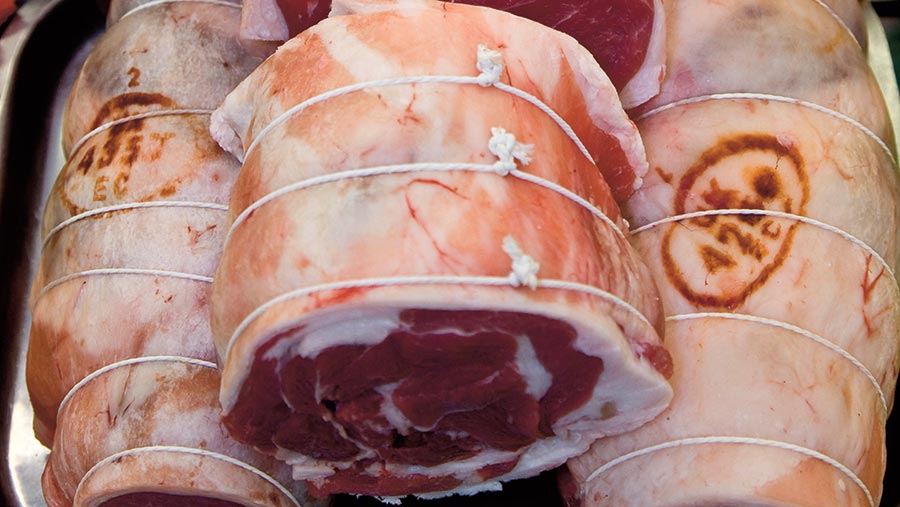Meat exporters debate trade prospects post-Brexit
 © Tim Scrivener/Rex/Shutterstock
© Tim Scrivener/Rex/Shutterstock Claims that huge export opportunities will easily open up after the UK leaves the European Union have been branded a “myth”, according to AHDB Beef & Lamb’s head of exports, Jean-Pierre Garnier.
Speaking in Paris at SIAL, one of the world’s biggest food exhibitions, Mr Garnier, said negotiating trade deals with non-EU countries would take much longer than the public had been led to believe.
Non-tariff barriers, which cover standards, had become so complex that they were dragging out negotiations and world trade was plateauing as a result.
See also: Leadsom prepares to take food exports ‘to the next level’
“It’s getting harder all the time,” said Mr Garnier. “It is years and years of negotiations.
“Everyone thinks we have friends abroad who will want to help us out, but everyone defends their own interests.
“It takes a lot of time and effort to develop third-country markets, whereas we’ve been in the EU a long time. Leaving the EU is not going to improve things.”
He also warned that the UK’s sheep industry would not survive without free access to the single market, as it exports 40% of its production, 90% of which goes to the EU, mostly France.
Concerns over trade
Many UK meat and dairy exhibitors at SIAL also expressed serious concerns about the impact Brexit would have on their trade, although they said the British food brand was currently very strong.
Michael Dundon, managing director at Dunbia, said everyone in the meat export trade was talking about Brexit, although it was “business as usual” until further details emerged.
And Tom Chatfield, sales manager at family cheesemakers Quicke’s dairy, which exports 40% of its products, said the company was worried about what might happen in the medium term if the UK left the EU without a trade deal.
“Our concern is that in that period we might lose ground,” he told Farmers Weekly.
A number of large meat processors, who worked across the UK and Ireland, said they hoped the UK would go for a “soft Brexit” as they feared damage to trade relationships between the two countries.
However, some processors were upbeat. Kevin Burrows, director at C&K Meats, said the British flag meant quality and safety, and Brexit would just mean another bit of paper when trading.
“I’m sad the pound has dropped, but it’s been an opportunity for me to sell more product,” he said.
Currently, demand for UK lamb, beef and pork was very strong and outstripping supply, said Mr Garnier, so the short-term outlook for producers was positive.
There had not been any importer kick-back from the EU referendum result, although this could change if Brexit negotiations turned sour, he added.
Farmers Weekly says…
Jez Fredenbugh, deputy business editor
Defra secretary Andrea Leadsom used the SIAL food show to launch a new five-year strategy for British exports, intended to open up new markets.
But her reiterations that she was “banging the drum” for UK food and farming resulted in more questions than answers. While she made all the right noises about shouting loudly for “the best deal” for UK farmers in Brexit negotiations, she would not be drawn on what this might actually mean.
Mrs Leadsom’s “ambition” was to retain as much access to key EU markets as possible. But she would not say whether she would be pushing to protect sensitive sectors like the sheep industry, or go for an all-out free-trade policy.
Instead, she rolled out the current government line that no details could be given now in case they jeopardised negotiations.
She is clearly keeping her cards close to her chest. But many farmers and processors worry that there is still no game plan – and that the key players don’t know the rules of engagement.
